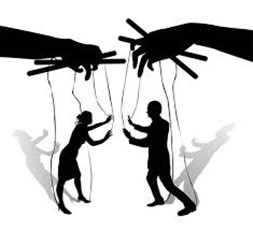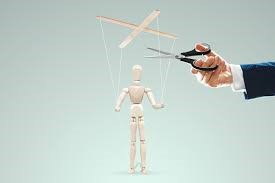
A week or so ago I was talking to a friend and her son who had been sent home for trying to hurt another child at school, (not a Lutheran school). Things had been okay for a while, but this was not something entirely new for the family and their son.
My friend’s son has a great sense of justice, what is right and wrong and keeping to the rules of a game. Having many years of experience in schools this is a familiar issue for some children.
After my friend’s son explained what had happened his mum spoke to him about how wrong it was to try to hurt another person.
Then I spoke to him about “puppets.” I asked him if he knew how puppets worked and he said he did. We talked about how the other students were trying to get a reaction from him, knowing that if they did certain things he would react, and he did. Continuing our chat about puppets we talked about how puppets move and what makes them move. He immediately made the connection that his school mates were “pulling his strings” just like the puppeteer pulls the strings to make the puppet do what they want them to do.
Later I thought about how some people always want to get a reaction from individuals or groups of people, and I tried to fathom why this is. I came to the conclusion that that doesn’t really matter why, the issue is how do we stop it from occurring over and over again.
In our schools we have some very vulnerable students who will react to other students’ behaviour toward them “puppets” and unfortunately it is sometimes very hard to stop the cycle.
This is also true with adults. We see it on the playing field with opposing teams annoying – having a go at each other, teasing each other to cause a fowl and as a consequence gain a free kick or even have the retaliating player sent to the “sin bin” or sent off for the rest of the game.
So how do we stop the cycle? It’s hard, but I am hopeful that my friend’s son took on board the example I gave him about puppets pulling strings and how these children at school are pulling his strings. I pray that he will be able to recognise when this is happening and in time break the cycle.
“Love is patient and kind; love does not envy or boast; it is not arrogant or rude.
It does not insist on its own way; it is not irritable or resentful.”
I pray that our wonderful students can be safe and not have other students pulling their strings, let’s break the cycle.

Eunice
DSLS
